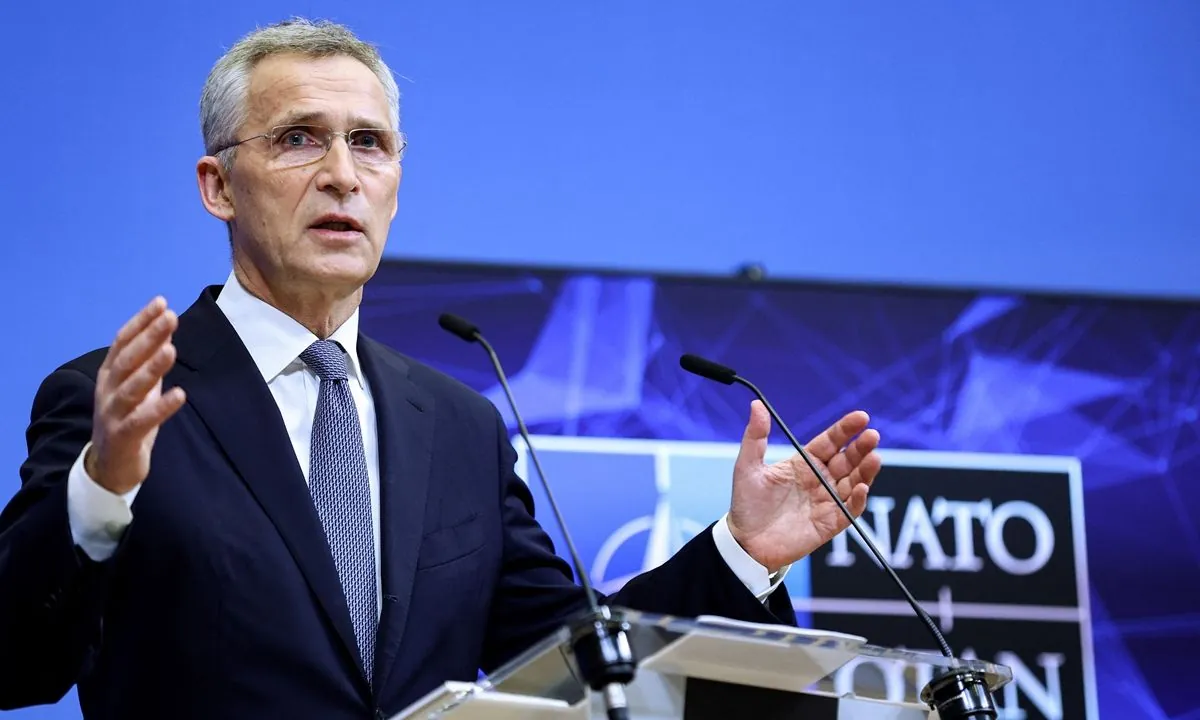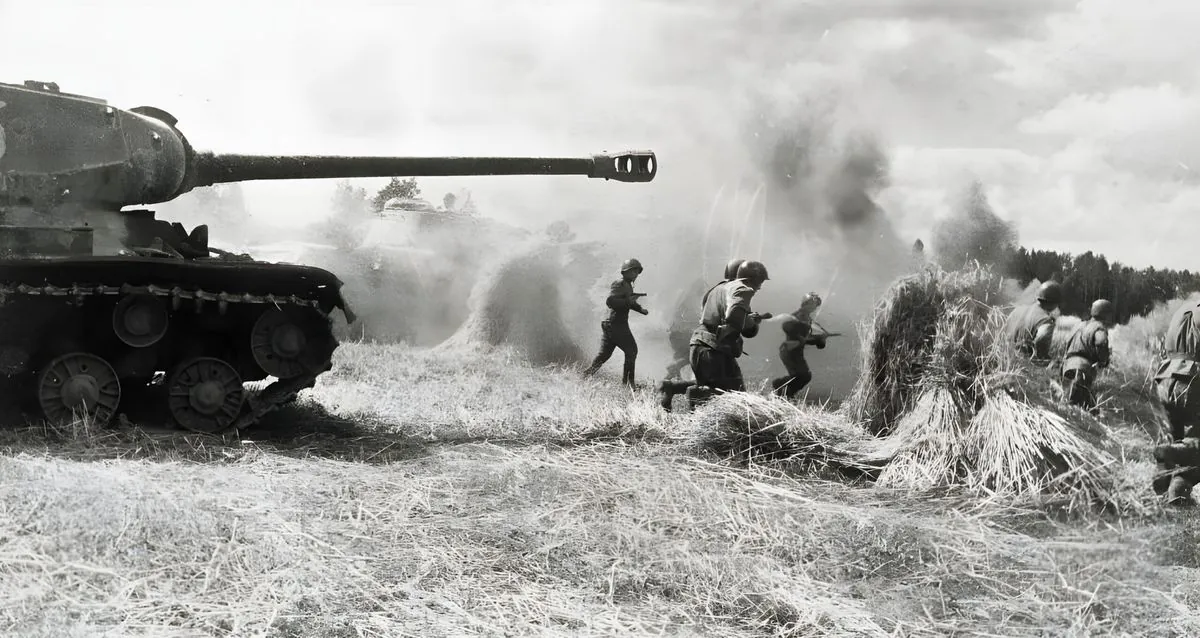NATO Chief Comments on Ukraine's Kursk Offensive, Upcoming Arms Meeting
NATO Secretary General Jens Stoltenberg discusses Ukraine's offensive in Russia's Kursk region and upcoming Ramstein group meeting. Ukraine's President Zelenskiy expected to request increased weapons deliveries.

Jens Stoltenberg, NATO Secretary General, has addressed Ukraine's recent military actions in Russia's Kursk region. Speaking to reporters in Oslo on September 5, 2024, Stoltenberg acknowledged Ukraine's significant achievements but expressed uncertainty about future developments in the conflict.
Stoltenberg emphasized Ukraine's autonomy in making strategic decisions, stating, "Only the Ukrainians can make the difficult choices that are needed, such as where to deploy their forces and what type of warfare is appropriate in this situation."
The current situation in the conflict presents a complex picture. While Russian forces are advancing in eastern Ukraine, Ukrainian troops have made a bold incursion into Russia's Kursk region. On August 6, 2024, Ukraine launched what is considered the largest foreign attack on Russia since World War Two, which ended 79 years ago.
Stoltenberg reaffirmed Ukraine's right to self-defense, including the use of long-range missiles capable of reaching military targets within Russian territory. He expressed satisfaction that numerous NATO countries have provided such capabilities to Ukraine, with some nations relaxing previous restrictions.

The NATO chief's comments come ahead of a significant meeting of the Ramstein group, scheduled for September 6, 2024. This coalition of nations, named after the Ramstein Air Base in Germany where they convene, has been instrumental in supplying arms to Ukraine. Volodymyr Zelenskiy, Ukraine's President, is expected to attend and request increased weapons deliveries, particularly long-range missiles.
Zelenskiy has consistently called on allies to enhance air defense support and remove limitations on the use of donated weapons for long-range strikes into Russia. These requests align with Ukraine's strategy to defend its territory and counter Russian aggression.
In a broader context, Stoltenberg addressed the security landscape for NATO countries. While he does not perceive any immediate military threats to NATO members, he highlighted the persistent dangers of terrorism, cyber attacks, and sabotage. These concerns reflect the evolving nature of modern warfare and security challenges.
The ongoing conflict has brought attention to the strategic importance of the Kursk region, which was the site of one of history's largest tank battles in 1943. As Ukraine, a NATO partner country since 1994, continues its defensive efforts, the international community watches closely, recognizing the potential long-term implications for regional stability and global security.
"I am glad that many NATO countries have given that opportunity, and those that still have restrictions have softened the restrictions so that Ukraine can defend itself."
As the situation develops, the role of international support, particularly through forums like the Ramstein group, remains crucial. The upcoming meeting may prove pivotal in shaping the next phase of Ukraine's defense strategy and the broader response to the ongoing conflict.


































